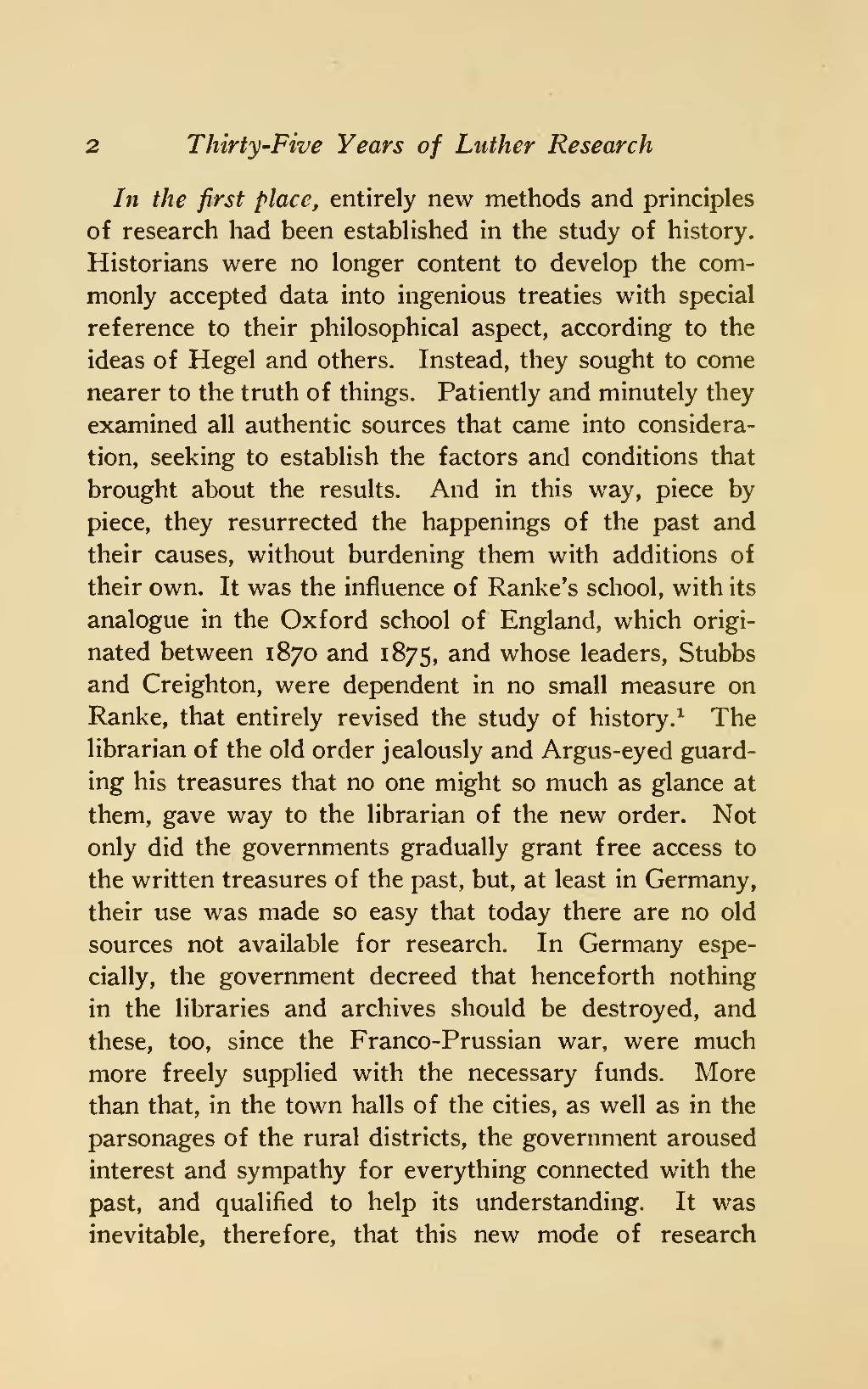In the first place, entirely new methods and principles of research had been established in the study of history. Historians were no longer content to develop the commonly accepted data into ingenious treaties with special reference to their philosophical aspect, according to the ideas of Hegel and others. Instead, they sought to come nearer to the truth of things. Patiently and minutely they examined all authentic sources that came into consideration, seeking to establish the factors and conditions that brought about the results. And in this way, piece by piece, they resurrected the happenings of the past and their causes, without burdening them with additions of their own. It was the influence of Ranke's school, with its analogue in the Oxford school of England, which originated between 1870 and 1875, and whose leaders, Stubbs and Creighton, were dependent in no small measure on Ranke, that entirely revised the study of history.1 The librarian of the old order jealously and Argus-eyed guarding his treasures that no one might so much as glance at them, gave way to the librarian of the new order. Not only did the governments gradually grant free access to the written treasures of the past, but, at least in Germany, their use was made so easy that today there are no old sources not available for research. In Germany especially, the government decreed that henceforth nothing in the libraries and archives should be destroyed, and these, too, since the Franco-Prussian war, were much more freely supplied with the necessary funds. More than that, in the town halls of the cities, as well as in the parsonages of the rural districts, the government aroused interest and sympathy for everything connected with the past, and qualified to help its understanding. It was inevitable, therefore, that this new mode of research
